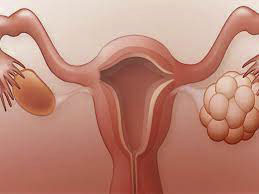
Polycystic ovary syndrome (PCOS) is one of the most common endocrine diseases in women at their reproductive age. Nowadays, the use of herbal compounds for lesser side effects, as compared to drug treatments, has become popular for the prevention and reduction of the complications of this disease. Evidence suggests that cinnamon,
given its antioxidant and anti-inflammatory properties, can be associated with reduced metabolic complications from chronic non-communicable diseases. This systematic review aimed to determine the potential effect of cinnamon on the metabolic status of PCOS. PICO framework for the current systematic review was Population (P): subjects with PCOS; Intervention (I): oral cinnamon supplement; Comparison (C): the group as control or administered placebo; and Outcome (O): changed inflammatory, oxidative stress, lipid profile, glycemic, hormonal and anthropometric parameters, and ovarian function. PubMed, Scopus, EMBASE, ProQuest, and Google Scholar were searched from their very inception until January 2020, considering specific keywords to explore the related studies. Out of 266 studies retrieved by the search strategy, only nine were eligible for evaluation. All clinical trials, animal studies, and published English-language journal studies were eligible for this review. The results showed that increased high-density lipoprotein and insulin sensitivity were increased by the cinnamon supplementation while low-density lipoprotein, triglyceride, and blood glucose were decreased in patients with PCOS. However, the results related to the potential
effects of cinnamon on body weight and body mass index were inconsistent, thus calling for further studies. Also, despite improved results regarding the effect of cinnamon on oxidative stress and ovarian function, further studies are required to explore the precise mechanisms. Overall, the effects of cinnamon on the improvement of metabolic status in PCOS were promising. However, to observe clinical changes following cinnamon supplementation in PCOS, more clinical trials with higher doses of cinnamon and a longer duration of intervention are needed

